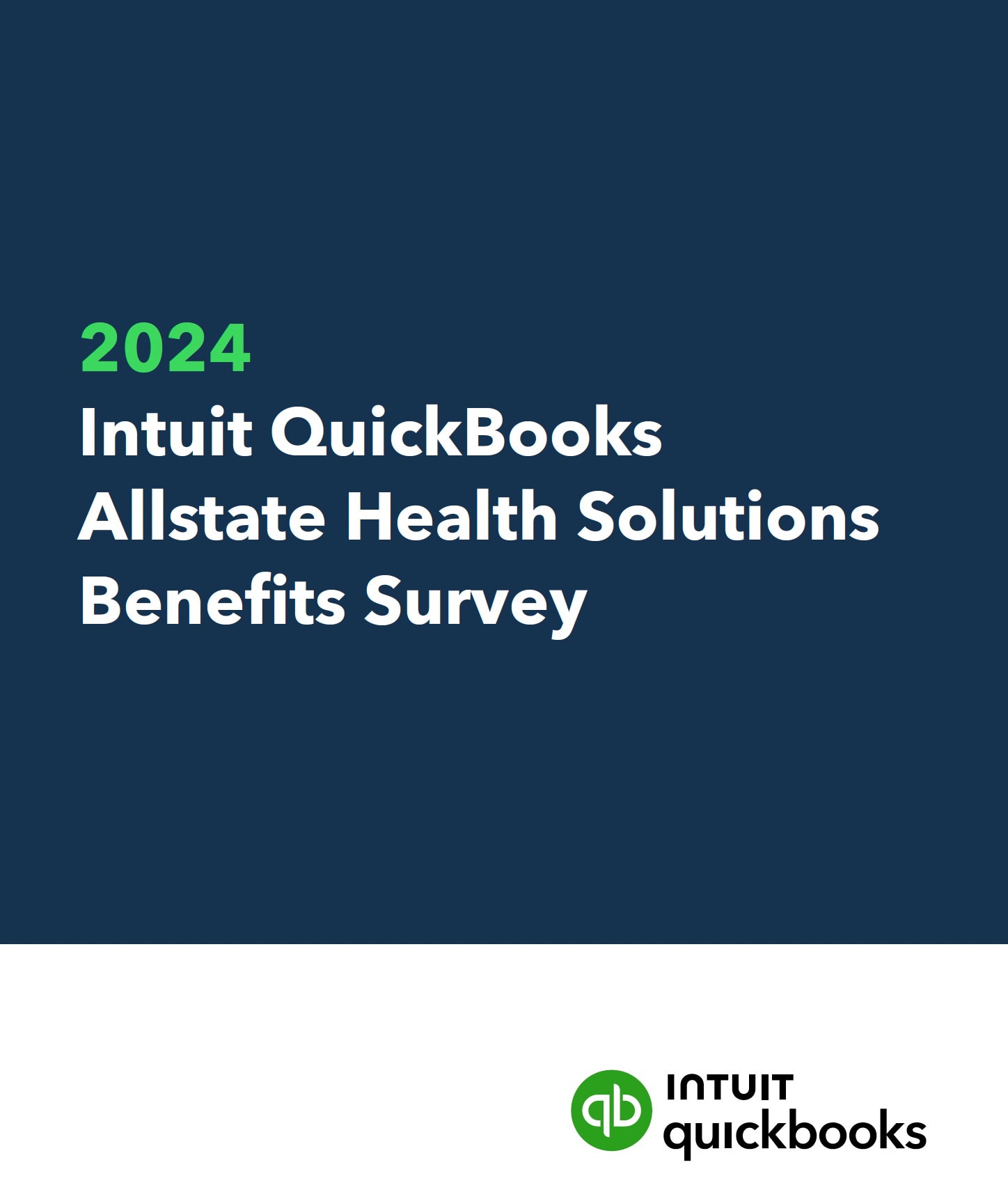The survey engaged 1,000 employees from small and large businesses all enrolled in their company’s health insurance plan.
With macroeconomic challenges such as rising interest rates and inflation, employees face more challenges when it comes to managing their health benefits costs. In fact, 23% of employees surveyed across small and large companies said they struggle to afford their employer-provided benefits, and most workers (62% at smaller and 66% at larger companies) think their monthly contributions are too high.
“With the historically low unemployment rates in the United States, businesses can't afford to lose employees in today's competitive market,” said Laurent Sellier, senior vice president, Intuit QuickBooks Payroll Solutions. “Our research shows that employees are placing higher value on health benefits when it comes to their job satisfaction, but many are finding it difficult to manage benefits costs in today’s economic climate. For that reason, maintaining competitive benefits packages at an affordable price is vital to employee retention.”
Additional findings include:
- Medical costs impact ability to save long term: Most workers at small (71%) and large companies (63%) have struggled to save long term for emergencies or retirement because of medical costs. And more than a quarter of women at small and large companies report medical costs have significantly impacted their ability to meet long-term financial goals, compared to 18% of men.
- Range and choice of benefits matter: Nearly 60% of employees want a range of benefits options to choose from, including Health Maintenance Organizations (HMOs), Preferred Provider Organizations (PPOs), and Flexible Spending Accounts (FSAs). In addition, 50% at small and 61% at larger companies want the choice of adding supplemental benefits, including dental, vision, mental health, pet insurance, and more.
- Job satisfaction and productivity are tied to benefits: More than nine out of 10 employees at small and large companies connect their overall job satisfaction to their benefits, and a substantial majority say inadequate coverage of medical needs could impact their ability to be productive while on the job, as noted by 68% of employees at smaller companies and 72% at larger businesses.
“We understand that employees seek comprehensive and flexible benefits that support their well-being,” said David Essary, president at Allstate Benefits and Allstate Health Solutions. “Our partnership with Intuit QuickBooks ensures seamless connected, embedded insurance that enhances employee satisfaction and retention, while helping businesses attract top talent.”
To support talent retention and hiring, QuickBooks recently partnered with Allstate Health Solutions to provide businesses with expanded health insurance options for their employees. To learn more about QuickBooks partnership with Allstate Health Solutions, visit our QuickBooks Online Payroll benefits page.
2024 Intuit QuickBooks Allstate Benefits Survey Methodology
The survey was conducted by Wakefield Research among 500 employed adults working at companies of 5 to 100 employees, and 500 employed adults working at companies with more than 100 employees, all of whom were currently enrolled in their company's health insurance plan, between May 24 and May 31, 2024, using an email invitation and an online survey. Data has been weighted using data from the most recent current population survey conducted by the U.S. Census Bureau and the U.S. Bureau of Labor Statistics for audience segment categories, including gender, age, region, ethnicity, race, education, income, and urbanicity. The results of any sample are subject to sampling variation. The magnitude of the variation is measurable and affected by the number of interviews and the level of the percentages expressing the results. For the interviews conducted in this particular study, the chances are 95 in 100 that a survey result does not vary, plus or minus, by more than 4.4 percentage points for both the 5-100 segment and the more than 100 employees segment.














